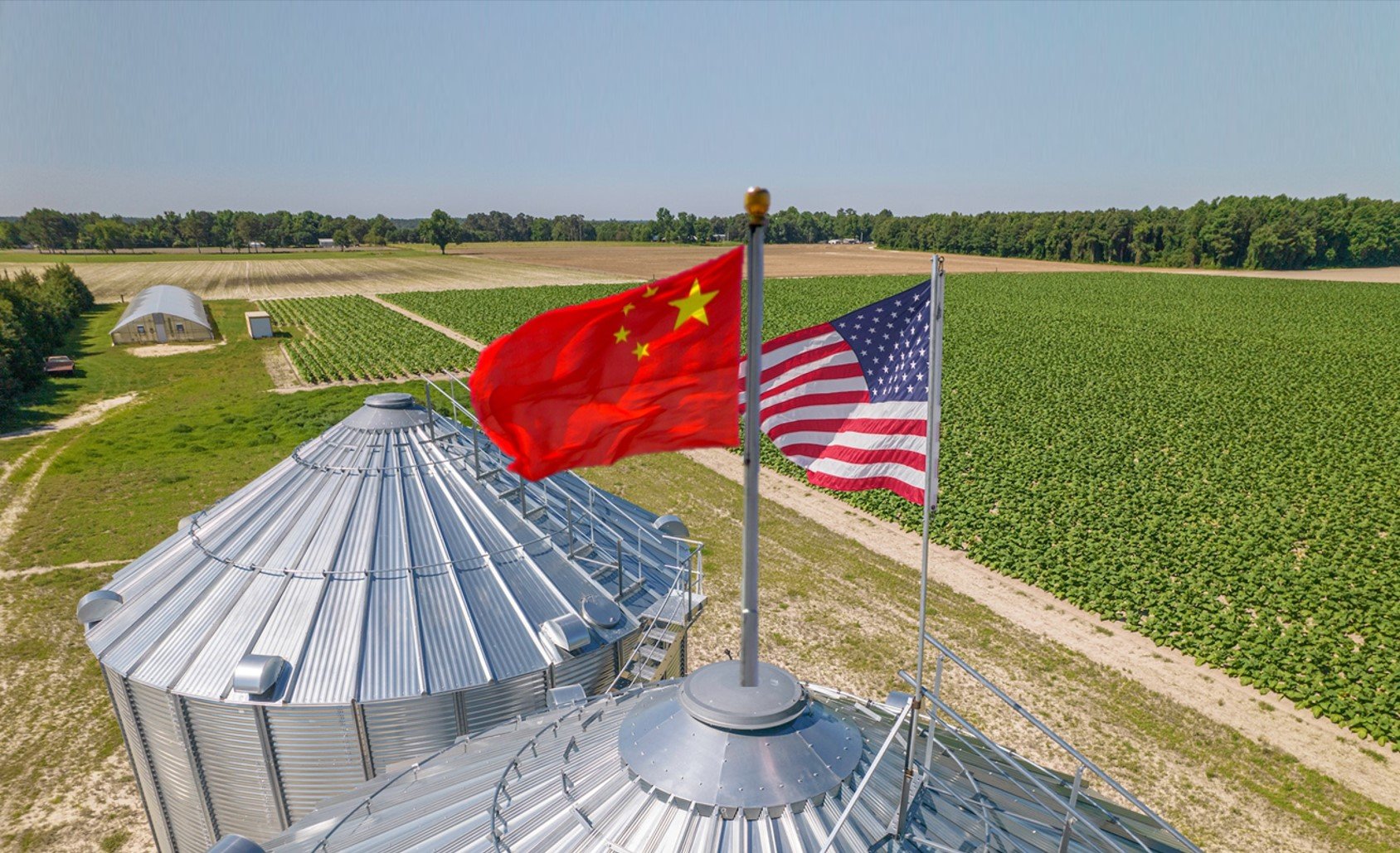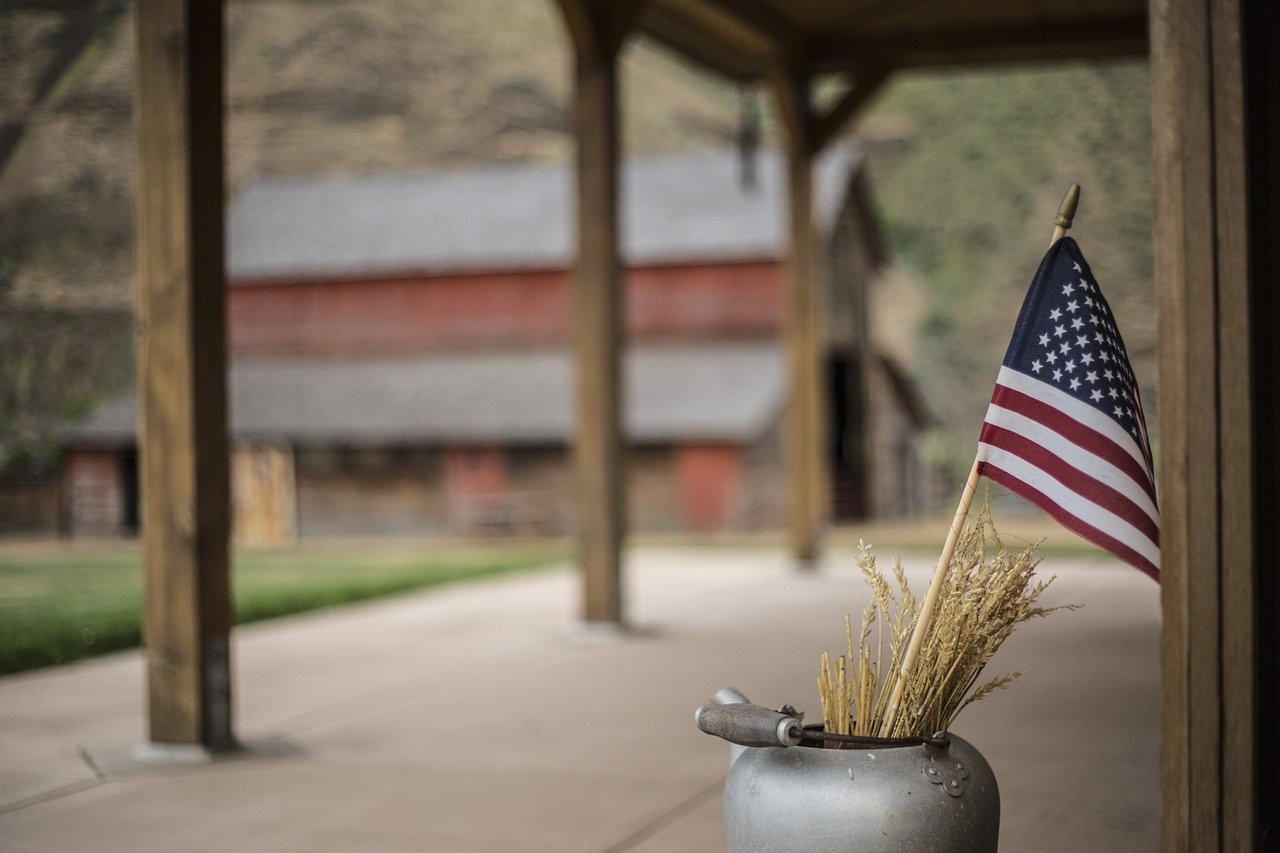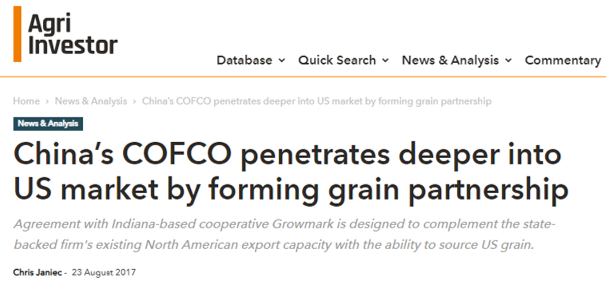
The EATS Act would allow China to take root in the heartland of America, posing a significant threat to states' rights and our farming sovereignty.
Stop China’s Takeover of U.S. Agriculture
Executive Summary
Chinese interests are not solely focused on land rights; they are aggressively acquiring entire agricultural companies, posing a significant threat to our farming sovereignty. Enacting the Hinson/Marshall Ending Agricultural Trade Suppression (EATS) Act via the Farm Bill would eliminate hundreds of state agricultural laws, effectively paving the way for a regulatory void. This absence of rules, particularly in areas where none currently exist, would create an environment in which large Chinese corporations like Smithfield Foods and others can easily expand across all 50 states without having to comply with diverse regulations.
Introduction
If the Ending Agricultural Trade Suppression (Act H.R.4417 / S.2019) were to pass at the federal level, it would eliminate the need for big foreign companies to navigate and comply with various state laws, thereby streamlining the acquisition process and potentially accelerating the pace of their land purchases.
The proposed Ending Agricultural Trade Suppression Act has drawn considerable attention in the ongoing debate surrounding Chinese land ownership in the United States. If passed, this legislation will exacerbate the existing problem of growing Chinese influence and further undermine American interests and national security.
This is because the proposed bill would effectively streamline the process for large foreign companies to acquire land across multiple states by eliminating the need to navigate and comply with various state laws. While proponents claim the EATS Act would promote efficiency, this is exactly the kind of efficiency that creates potential for foreign companies, including those from China, to exploit this streamlined process to rapidly expand their land holdings and ownership of US animal agriculture functions.
By bypassing state-level regulations and oversight, these companies could gain significant control over crucial sectors such as agriculture and critical infrastructure, further diminishing American sovereignty and security.
The Hinson/Marshall EATS Act would strip individual states of their ability to enact laws tailored to their unique circumstances and needs. State-level regulations serve as important safeguards, ensuring that land acquisitions align with local interests, preserve natural resources, and protect local communities. By eradicating these protective measures, the act would open the floodgates for foreign companies to make sweeping acquisitions across the country without sufficient checks and balances.
Limits States’ Ability to Fight Growing Chinese Influence
If the EATS Act passes, States will forever lose the ability to prohibit the sale of food grown on Chinese owned farms outside their own state borders. In other words, any state-level lawmakers aspiring to counter the growing Chinese influence in American agriculture would lose the ability to pass a state-level law that prohibits the sale of items produced by Chinese-owned operations located on U.S. soil.
Land Acquisitions
In many US states, Chinese Corporations are fast acquiring both farm land and farm operations themselves. The value of land owned by Chinese interests increased by over 200 times from $81 million in 2010 to $1.8 billion in 2020. (URL Defense) Three large entities — Sun's companies, Smithfield Foods and Walton International Group, a global land investment firm — own large parts of Chinese-bought land. (NPR)
Unfortunately, many federal lawmakers are so focused on the actual land acquisitions that they’re missing China’s more devastating move, which is the acquisition of entire animal agriculture assets.
As of December 2021, foreign persons/entities held an interest in approximately 40 million acres of U.S. agricultural land. In other words, foreign interests already own over 3% of American farmland, a number that is rising dramatically. (USDA)
Acquiring Means of Production (Farms, Corporations)
In recent years, Chinese ownership and investment in American agricultural business operations have expanded, extending their reach into various states across the country.
Prominent examples include Smithfield Foods, the largest pork processor in the United States, which is now majority-owned by Chinese conglomerate WH Group. Continental Grain Company, a global agribusiness firm with operations in the United States, received significant investment from Chinese conglomerate COFCO Corporation, solidifying Chinese influence in the company.
Furthermore, Ingram Micro, a leading technology and supply chain services company operating in multiple sectors, including agriculture, was acquired by Tianjin Tianhai Investment Company, a subsidiary of Chinese conglomerate HNA Group. (Ingram Micro) This trend underscores the growing presence of Chinese entities in the U.S. agriculture sector, raising questions about the long-term implications for American food production, supply chains, and national security.
A Chinese Holding Company Fully Acquired Smithfield in 2013
This is not hypothetical, as China already purchased the largest American pork producer (Smithfield) in 2013. “Smithfield Foods, headquartered in Smithfield, Va., was acquired 10 years ago by WH Group, a Chinese meat and food processing company.” (Fox News)
Chinese-owned Smithfield Highlights Inconvenience and Business Expenses of Accommodating State Laws:
“This conversion [to group housing] was celebrated, but now the goal posts have been moved,” Ray Atkinson, director of external communications at Smithfield, said in an email to Agri-Pulse. “Not only have the goal posts moved, but they’re moving differently in different states. A patchwork of state-by-state regulations…is not conducive to an efficient food production system…” He also said legislation is "needed to ensure the cost-efficiency of our food system.” (Agri Pulse)
State Laws are Inconveninent for Large Foreign Conglomerates
“It doesn’t take a business degree to realize the obvious here, which is that one of the few features of the American policy landscape that’s preventing even greater foreign corporate ownership is the variance in state laws. Nameless Chinese holding companies have a rational incentive to want to bulldoze away all state laws related to animal agriculture, as it enables them to acquire land and operations more efficiently.” - Marty Irby, OCM




